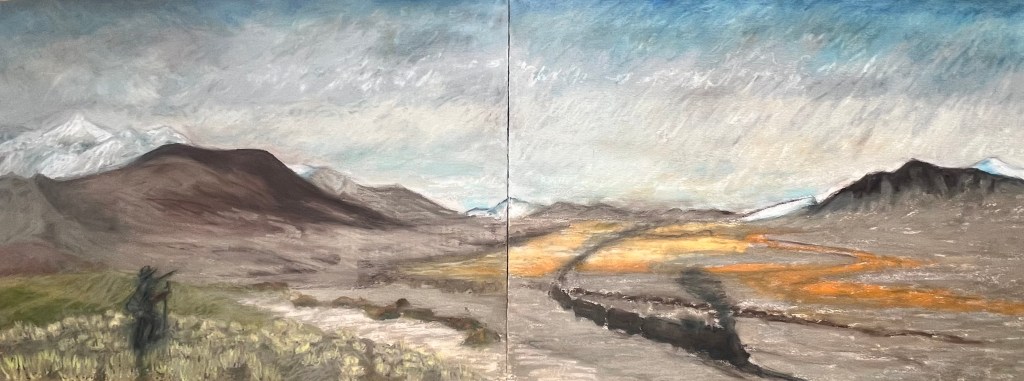
Robin L. Chandler, 2026
“Wake up, wake up
Wake up, wake up
Wake up, wake up
Wake up, wake up
Time we were all gently rising up”
Lyrics excerpt from the Irish folk music duo Ye Vagabonds song Wake Up (listen here on youtube).

“Wake up, wake up
Wake up, wake up
Wake up, wake up
Wake up, wake up
Time we were all gently rising up”
Lyrics excerpt from the Irish folk music duo Ye Vagabonds song Wake Up (listen here on youtube).
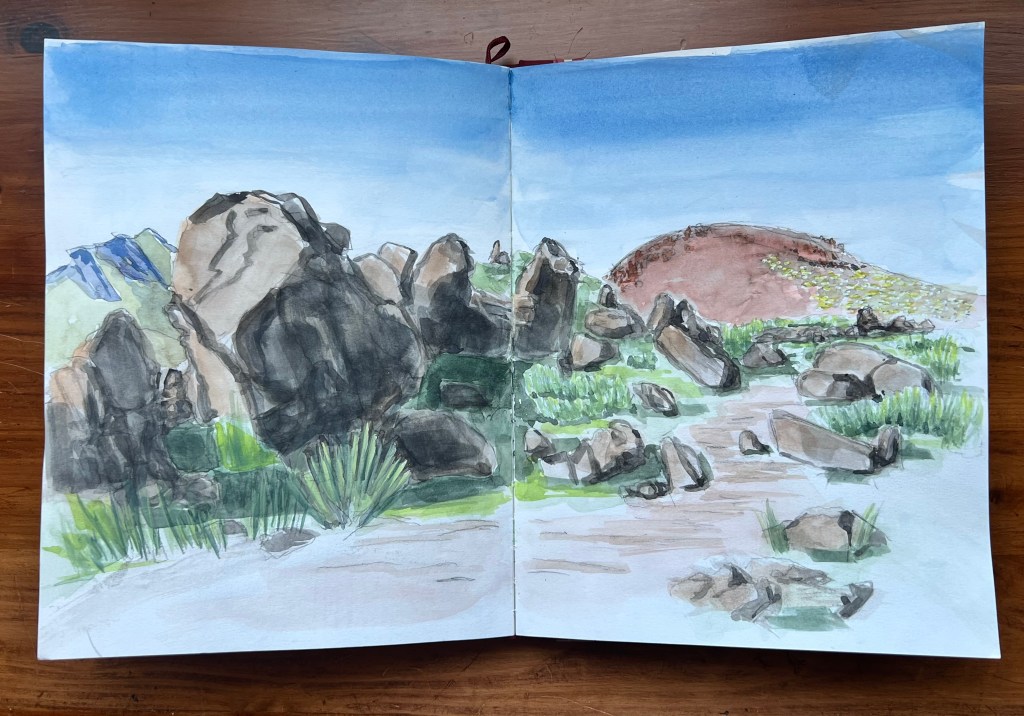
The production of a work of art throws a light upon the mystery of humanity. A work of art is an abstract or epitome of the world. It is the result or expression of nature in miniature. For, although the works of nature are innumerable and all different, the result or the expression of them all is similar and single. Nature is a sea of forms radically alike and even unique. A leaf, a sunbeam, a landscape, the ocean, make an analogous impression on the mind. What is common to them all, — that perfectness and harmony, is beauty. The standard of beauty is the entire circuit of natural forms, — the totality of nature; which the Italians expressed by defining beauty “il piu nell’ uno.” Nothing is quite beautiful alone: nothing but is beautiful in the whole. A single object is only so far beautiful as it suggests this universal grace. The poet, the painter, the sculptor, the musician, the architect, seek each to concentrate this radiance of the world on one point, and each in his several work to satisfy the love of beauty which stimulates him to produce. Thus is Art, a nature passed through the alembic of man. Thus in art, does nature work through the will of man filled with the beauty of her first works.
Excerpt from Ralph Waldo Emerson’s essay Nature published in Ralph Waldo Emerson Collection: Collected Essays and Lectures (p.9) published in 1849.
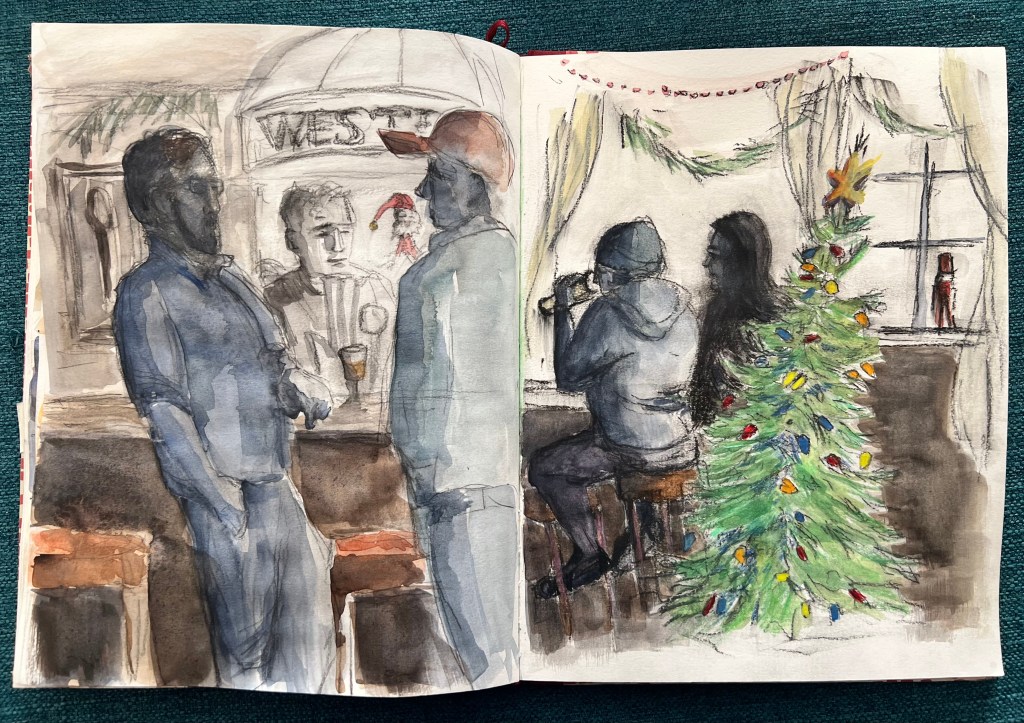
“In 1935, the National Park Service recommended an 83-square mile park, but there was no action until 1958. By this time, subdivisions were again being planned, logging was underway at Inverness Ridge, and the state was planning a freeway that would replace Highway 1 and open the area to suburban development. One lobbyist told a Congressional committee that by the year 2000
‘there will no longer be a Marin County. There will be a greater San Francisco..…the section we have under discussion today, gentlemen, will be as intensely built over as Palo Alto, or Burlingame or San Mateo.’
The MCL [Marin Conservation League] worked with Marin’s representative in Congress Clem Miller, who introduced and tirelessly promoted his Point Reyes National Seashore bill in the House, while California’s US Senator Clair Engle, pushed it through in the Senate…..In a compromise with ranchers, the park bill allowed cattle and dairy ranching to continue for 25 years in a 27-square mile “pastoral zone,” while livestock grazing elsewhere would be phased out. Congress passed the bill, and President Kennedy signed it on September 13, 1962. The park was authorized to include 83 square miles, just as the Park Service had originally recommended…..”
Excerpt from David D. Schmidt’s San Francisco Bay Area: An Environmental History (Humboldt County, CA: Backcountry Press, 2025) pps. 396-398.
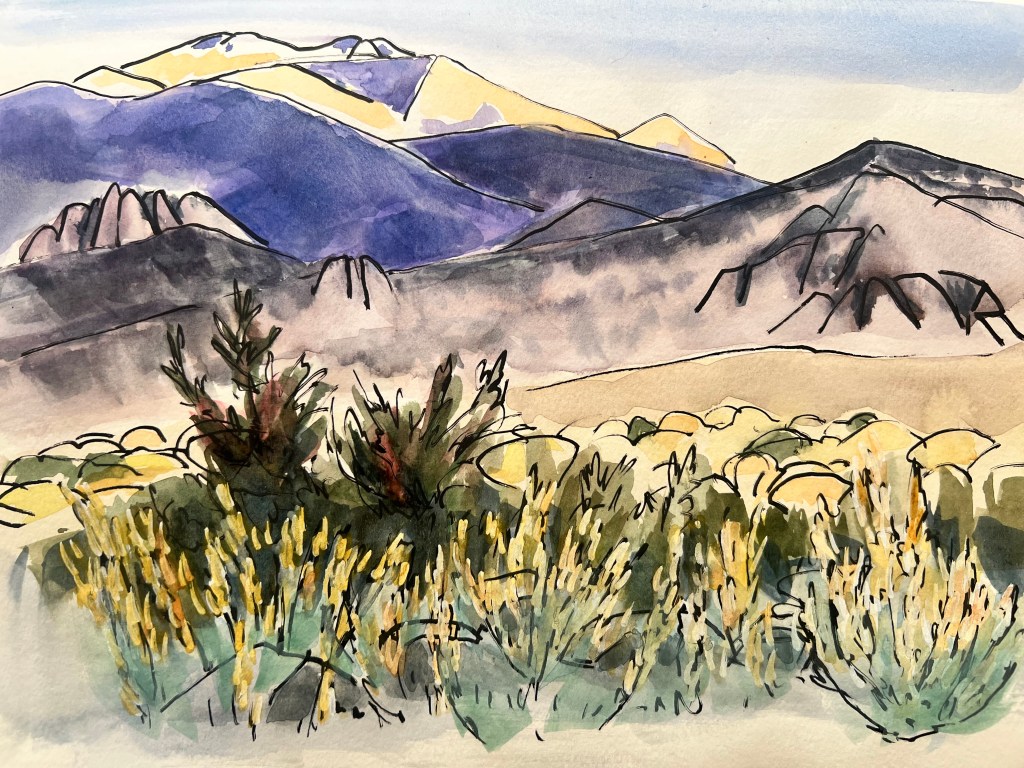
The Buttermilks Twilight. Robin L. Chandler, 2025
“Dürer was the first to take nature – a grassy meadow, for example, something completely mundane – and portray it. That kind of depiction hadn’t been done before. Until then, plants were always symbolic, like the lilies in a picture of the Virgin Mary. Earlier, each plant had a specific meaning. Dürer portrayed the meadow simply as a meadow – and that was completely revolutionary…..art doesn’t reside in nature as pure reality that you can depict directly. That doesn’t work anymore. Nature is no longer the innocent nature if once was…..
to make secretive is also to create a clearing in which something becomes visible, in which room for a new perception is created, but not in the scientific sense, in the mythological……
art brings all of the disparate kinds of knowledge into a new system. It brings this knowledge together and creates a unified view that must be constantly reinterpreted. It cannot be defined for all time…..
as a painter, one always hopes that under the surface, underneath what is visible, whether bricks or whatever, there’s something that will later mean more than what people see today. That is the veil…..that the painting already knows what will be in two centuries, what those looking at the painting will see in it in two hundred years. The veil of Isis can be a brick or a forest or whatever is painted and what is hidden beneath it is fed by the proceeding centuries but will also work in the centuries to come.”
Excerpt from Anselm Kiefer: In Conversation with Klaus Dermutz (New Delhi, India: Seagull Books, 2019) pps. 230 – 234

Twilight in a meadow in Bishop. Robin L. Chandler, 2025
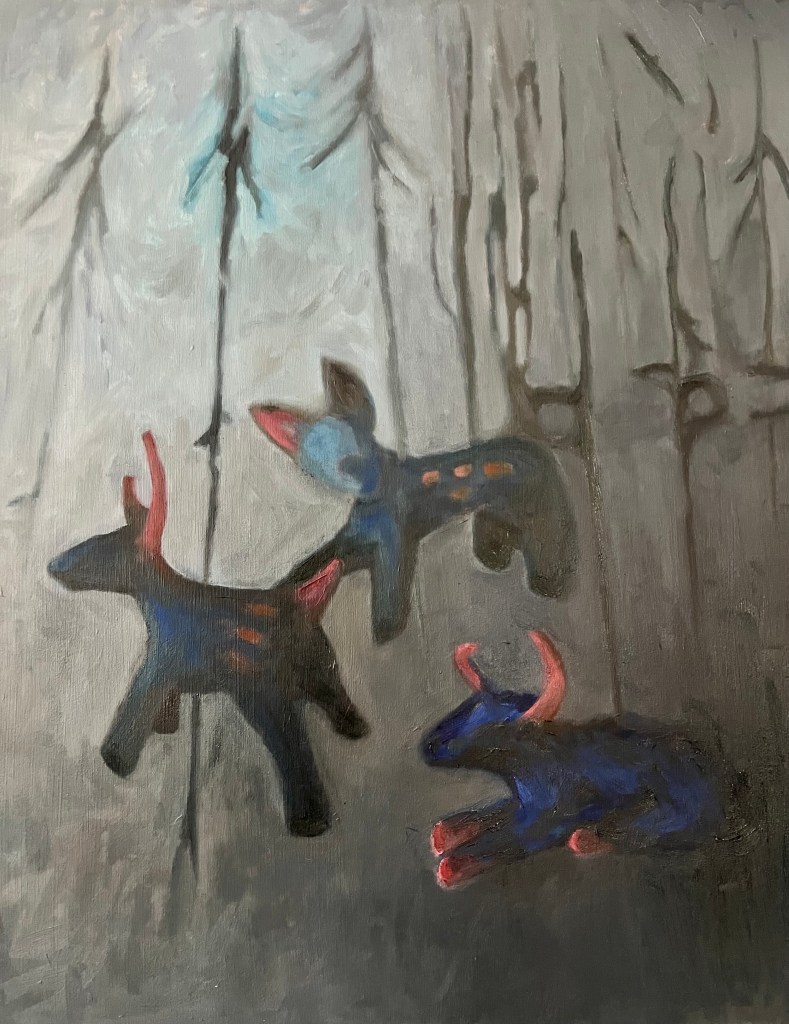
“Mass extinctions are extremely rare and catastrophic events, but the human-driven one is seldom deemed newsworthy by the dominant media. This is not an incidental oversight: the destruction of life’s diversity must remain invisible or obscure in the public domain, because it is fully entangled with the freedoms that people (are goaded to) value and seek.”
Excerpt from Eileen Crist’s Abundant Earth: Towards an Ecological Civilization (Chicago: The University of Chicago Press, 2019) p. 142

“…..and this, then,
is the vision of that Heaven of which
we have heard, where those who love
each other have forgiven each other,
where, for that, the leaves are green,
the light a music in the air,
and all is unentangled,
and all is undismayed.”
Excerpt from Wendell Berry’s poem To My Mother written in 1987 and published online by the Poetry Foundation.

“So while this is a book about the music of memory, it also necessarily becomes a book about the memory of music and the deeper social memory of art – its ability to recall the catastrophes of war but also the optimistic promise and gleam of earlier eras, or what the critic Walter Benjamin called, with touching simplicity, “hope in the past.” This book in fact draws inspiration from Benjamin’s vision of the true purpose of history: to sort through the rubble of earlier eras in order to recover these buried shards of unrealized hope, to reclaim them, to redeem them. They are, as he saw it, nothing more or less than the moral and spiritual building blocks of an alternate future.”
Excerpt from Jeremy Eichler’s Times Echo: Music, Memory, and the Second World War (New York: Alfred A. Knopf, 2023) ebook p. 32

“Thomas Berry was a US cultural historian who introduced the broader legal concept of Earth jurisprudence early in the twenty-first century. Earth jurisprudence is the philosophy of law and human governance that says humans are just one element in a wider community of beings, and that the welfare of one speaks to the welfare of all. “The universe is a communion of subjects, not a collection of objects, “ Berry argued, and it’s through the work of people such as Stone, Berry, Kimmerer, Kolbert, and others that we are moving our collective understanding, and our will, toward a more environmentally just world. In the face of the ecological catastrophes beating down on us, we must remember the collective good of countless people as well as the rights of trees, and of the land that supports and nurtures us all.”
Excerpt from Daniel Lewis’ Twelve Trees: The Deep Roots of Our Future (New York: Avid Reader Press, 2024) pps. 42 – 43

“…..And so I ride (which is my metaphor)
A full-sailed ship upon an endless sea,
A universe where nothing stays the same,
Sea, sky, wind, earth and time forever changing –
Time like a river in its ceaseless motion;
On, on, each speeding hour cannot stand still,
But as waves, thrust by waves, drive waves before them,
So time runs first or follows forever new;
The flying moment gone, what once seemed never
Is now, which vanishes before we say it,
Each disappearing moment in a cycle,
Each loss replaced within the living hour.
…..Though all four are of different place and kind,
Each comes from each, and to each returns:
Loose earth becomes a fluid, and as it flows
To water, water itself will change to air,
And air to fire which rises over it
To climb the highest reaches of the heavens.
They then return, last first in backward order,
Fire in smoky air, from air to water,
And waves changed into marshes turn to earth.
Nothing retains the shape of what it was,
And Nature, always making old things new,
Proves nothing dies within the universe,
But takes another being in new forms.
What is called birth is change from what we were,
And death the shape of being left behind.
Though all things melt or grow from here to there,
Yet the same balance of the world remains.
…..And now the measure of my song is done:
The work has reached its end; the book is mine,
None shall unwrite these words: nor angry Jove,
Nor war, nor fire, nor flood,
Nor venomous time that eats our lives away.
Then let that morning come, as come it will,
When this disguise I carry shall be no more,
And all the treacherous years of life undone,
And yet my name shall rise to heavenly music,
The deathless music of the circling stars.
As long as Rome is the Eternal City
These lines shall echo from the lips of men.
As long as poetry speaks truth on earth,
That immortality is mine to wear.”
Excerpts from Ovid’s The Metamorphoses Book XV, the doctrines of Pythagoras and the Epilogue translated by Horace Gregory (New York: Viking Press, 2009) from pages 413 – 437.
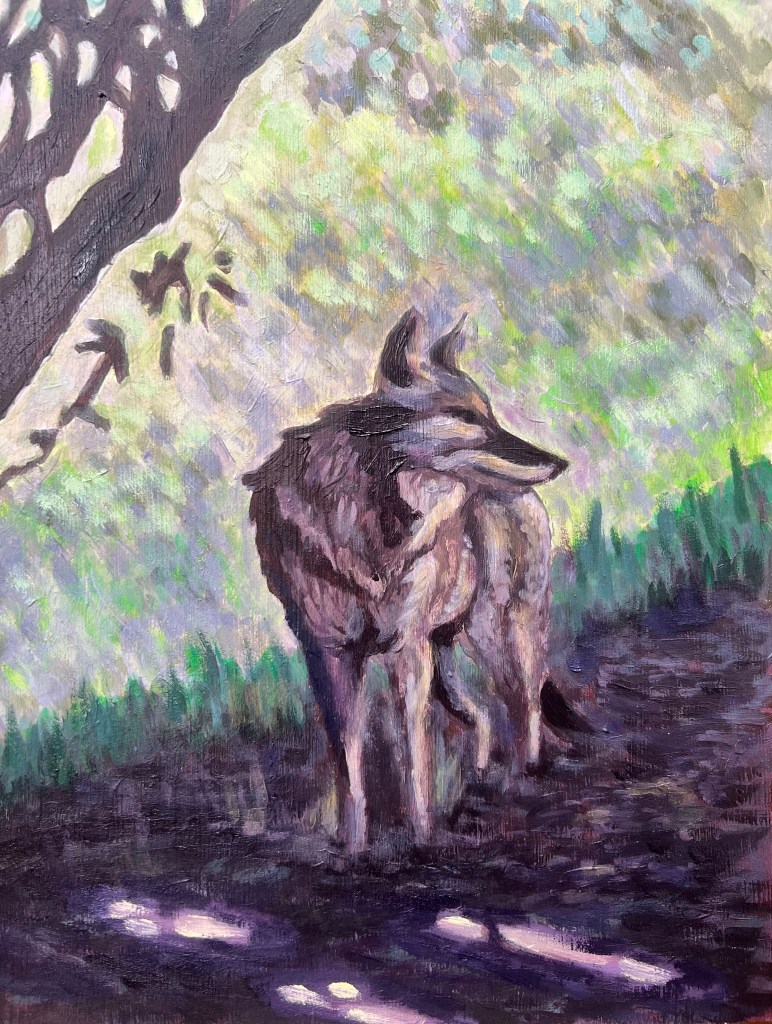
“One day Old Man Coyote was bored, and so he decided to have some fun and made a basket. A big basket, round like an acorn storage basket, only much bigger and rounder…..he wove his tracks into the pattern to give a hint who’d made it. When it was finished, he put everything People would need, forever, into the basket. And then he put the basket by the trail to see what would happen.
Sure enough, along came some People, and when they saw the big basket they said ‘Hey? What’s this?’ They knew it was a basket, but they had never seen any basket this big before…..when they looked inside and saw that it had everything they needed, they said, ‘We can live in it!’ So they did.
Well. Old Man Coyote had put everything We the People would need into that basket, but he never imagined that there would someday be so many of us, and some of us would invent needs that Coyote could never imagine we needed! Pretty soon he began to hear lots of fighting and arguing in the basket. And before long some of his strongly woven strands began to tear, and the basket got holes in it, and some of the People who went in together got thrown out through the holes! Just imagine!
Well, again. Old Man Coyote wasn’t really surprised. He’s not surprised at anything, of course. Being a Trickster, he just wants to try something and see what will happen – which is why he put the big basket by the trail that day when he was bored in the first place. But…Coyote was a bit sad anyway, seeing that his gift basket had become the place for a big fight among the People. That’s why you sometimes hear him crying and singing to himself at night.” (p.178-179)
…..David Hinton, a translator of classical Chinese poetry, argues in his book China Root: Taoism, Ch’an, and Original Zen that Ch’an began during the Tang dynasty of ninth-century China as an intellectual and cultural rebellion. Ch’an practice was seeking to recapture the feeling and experience of immediacy and wholeness of the Paleolithic human mind and to overcome the alienation of humans from the world that resulted from the agricultural revolution and its modus operandi of humans taking control of wild nature. (p.195)
…..Shunryu Suzuki wrote in the prologue to his 1970 book, Zen Mind, Beginner’s Mind, that ‘if your mind is empty, it is always ready for anything; it is open to everything. In the beginner’s mind there are many possibilities; in the expert’s mind there are few.’…..The bottom line would be that language and it’s constructs can get in the way of nondual, holistic perception and experience, of what Suzuki Roshi called beginner’s mind.” (p.196)
Excerpts from Bruce Byer’s Nature on the Edge: Lessons for the Biosphere form the California Coast
…